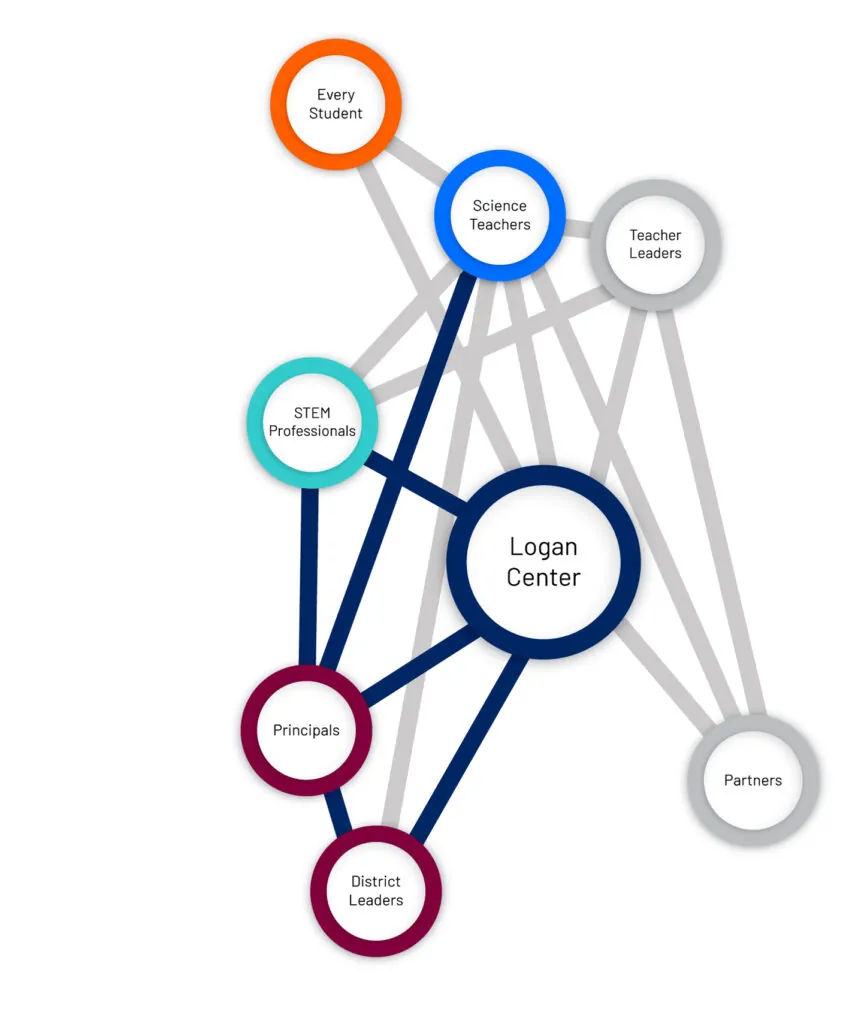Principles of Science for Principals
Puget Sound Region School Districts

OUTCOME
Students in middle and high schools in four districts around the Puget Sound region engaged in classroom activities where they are expected to interact with each other in ways similar to the ways professional scientists interact with each other. This experience better prepared them to be literate citizens of a STEM-centric society and bolstered their interest and ability to pursue STEM careers.
WHY?
Teachers collaborated in professional learning teams to develop sophisticated, multi-dimensional models of quality science instruction. They deepened their content knowledge and expanded their pedagogical repertoire.
WHY?
30 principals engaged as a group in learning experiences that established a vision of quality, progressive, K12 science experiences for every student. Each principal created, enacted and refined school-specific action plans based on multiple classroom observations, interactions with teachers and district leaders, and new knowledge and strategies gained from their experience.
WHY?
8 STEM professionals worked with principals and teachers, sharing their educational and career pathways and illuminating the skills and practices of contemporary STEM workplaces.
WHY?
4 district leaders advocated for the vision of quality science education for every student by enacting policies and practices for professional growth for the principals and teachers.
WHY?
ISB Education drew on education research and their decades of experience with the reality of school systems to partner with Bethel, Central Kitsap, Renton, and Yelm school districts to take a Systems Approach to K12 science education.
WHY?
University of Washingon Center for Educational Leadership, Terry Bergeson, Discuren Foundation, and ISB Education all partnered to design and lead Professional Development to strengthen the instructional leadership skills, of principals, that are unique to high quality science education.